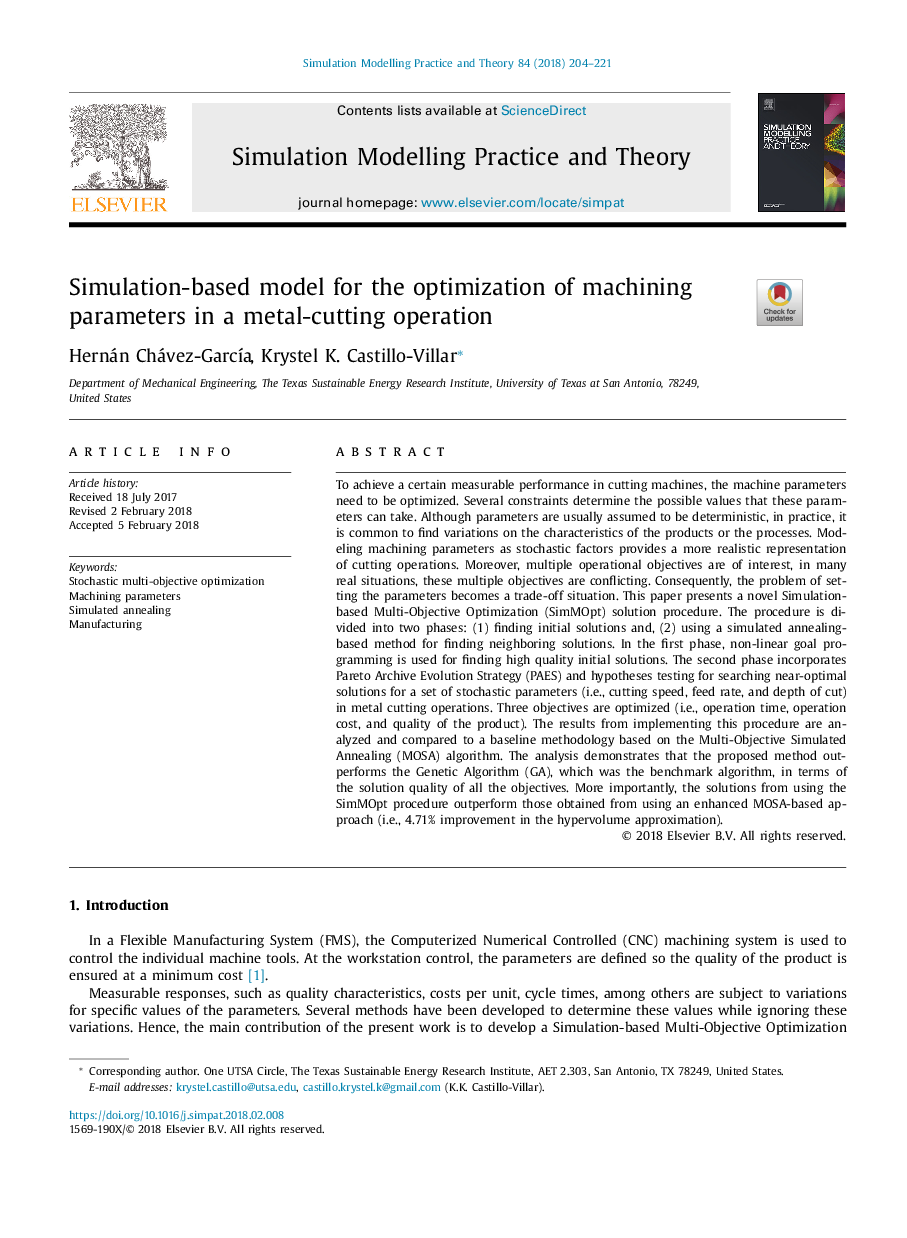ترجمه فارسی عنوان مقاله
مدل مبتنی بر شبیه سازی برای بهینه سازی پارامترهای ماشینکاری در عملیات برش فلز
عنوان انگلیسی
Simulation-based model for the optimization of machining parameters in a metal-cutting operation
| کد مقاله | سال انتشار | تعداد صفحات مقاله انگلیسی |
|---|---|---|
| 95775 | 2018 | 18 صفحه PDF |
منبع

Publisher : Elsevier - Science Direct (الزویر - ساینس دایرکت)
Journal : Simulation Modelling Practice and Theory, Volume 84, May 2018, Pages 204-221
ترجمه کلمات کلیدی
بهینه سازی چند هدفه تصادفی، پارامترهای ماشینکاری، شبیه سازی شده، ساخت،
کلمات کلیدی انگلیسی
Stochastic multi-objective optimization; Machining parameters; Simulated annealing; Manufacturing;

